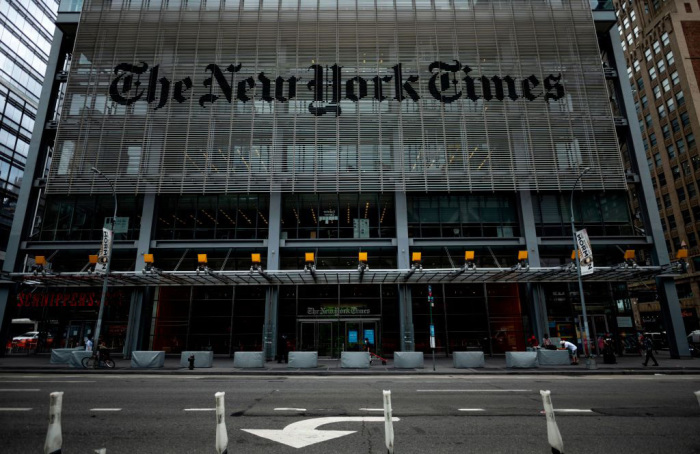Al Mohler denounces NY Times, media blaming churches for spreading COVID-19

Southern Baptist Theological Seminary President Albert Mohler Jr. denounced The New York Times and other media outlets that seem to blame churches for the spread of COVID-19.
In an episode of Mohler’s podcast “The Briefing” on Monday, the Southern Baptist leader critically analyzed an article published by The New York Times last month that accused churches of being the epicenter of infections nationwide.
Mohler noted that the piece, published on July 8 and updated on July 10, listed 650 confirmed novel coronavirus cases linked to 40 churches — 365 of those infections cited by the Times were in Union County, Oregon, many of which were reportedly linked to a church following a wedding that was attended by guests from out of town.
“Six hundred and fifty? For Christians operating from a biblical worldview, every single human life is precious, but in the midst of a plague or a pandemic we have to do some math,” said Mohler. “Six hundred and fifty here, over against a confirmed 4.75 million cases of COVID-19 in the United States,” according to the Johns Hopkins Coronavirus Resource Center.
Mohler stressed that he wasn't suggesting “only 650 cases of COVID-19 can or should be traced to a church or religious service meeting.” He was, however, taking issue with how much attention the Times gave to the number linked to the churches with its headline and story.
“I am saying that The New York Times documented only 650 cases and used that as justification to run what was in the print edition, a half-page of the paper,” he continued.
“This tells us that there's something behind the story other than the math. There's indeed something behind the story other than the story.”
Mohler then pointed to a USA Today article released several days later, which reported the same 650 cases and used the NY Times piece as its source.
“That's lazy journalism at the very least. You're talking 10 days later and all this reporter cites is the number from The New York Times more than 10 days old, and a number that didn't justify The New York Times article in the first place,” he added.
“There's something going on behind these stories, more than the math. It tells us something of the view of the secular media toward churches and church services.”
In response to state orders to shut down businesses and churches in late March, the vast majority of congregations decided to halt in-person worship services as a precaution until states slowly began allowing services to reopen.
Many congregations have reopened their doors, but some quickly decided to shut back down after COVID-19 infections spiked among their church members.
For example, First Baptist Church of Tillmans Corner of Mobile, Alabama, returned to online-only services in early July due to what Pastor Derek Allen called “a spike in COVID-19 cases among our faith family.”
“Regardless of what is happening nationally or statewide, there has been a significant increase in cases among FBTC members in the past two weeks. We need to move quickly and decisively to stop the virus before it spreads any further,” Allen said in July.
“We don’t want to see any of our faith family members suffer through a COVID-19 infection, and we want to do our part to contain this spike as much as possible.”
Nevertheless, many take issue with the media blaming churches for spreading the virus, especially congregations that observe social distancing guidelines, noting that there are other possible factors for the spike in cases.
Last month, Arkansas Baptist State Convention Executive Director J.D. Tucker sent a complaint to state officials over a report singling out specifically churches as possible sources of COVID-19 infections.
At issue for Tucker was a report by the Arkansas Department of Health naming dozens of churches, including two Baptist ones, as having allegedly “documented COVID-19 exposure.”
“Those two churches had at least 22,000 unique individual attendees since February 26, yet the ADH put them on the list for having four people attend (a family of three at one church, one person at the other) who later tested positive for the virus,” stated Tucker.
“These two churches in particular, as well as a multitude of other Arkansas Baptist Convention churches, have provided an incredible amount of ministry to Arkansans during this pandemic, provided thousands upon thousands of meals, served their communities through Disaster Relief efforts, and served first responders and the medical community.”





























